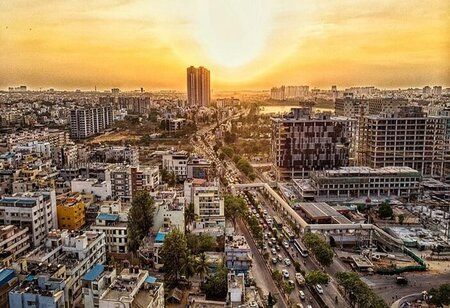Bengaluru's affordability crisis is worsening, with one of India's top fund managers lamenting "so many tax increases — just to fulfill the freebies promises," as the city's cost of living rises.
From water and milk to electricity, transportation, and rent, nearly every essential is now more expensive, forcing families to recalculate — or break — their monthly budgets.
Bengaluru residents are feeling the pinch as utility and service prices continue to rise. The latest blow: a 32% increase in water tariffs and a 25% increase in sewage charges, coming just after milk prices more than doubled.
Many households report monthly expenses of up to ₹5,000.
This year alone, cost increases have affected every category:
Power rates have gone up by 36 paise per unit.
Metro fares have risen 45-50%, and bus fares by 15%.
The sales tax on diesel has increased by 10-15%, while petrol has increased by 3.92%.
Stamp duty and registration fees have increased by 13–47 percent.
Milk prices rose from ₹40 to ₹82 per litre.
Diesel now costs ₹90, up from ₹55.
Medical service fees, beer, and liquor duties have increased by 4-20%.
State-run universities have announced a 10% annual fee increase.
Residential rents have not been spared either. Mid-range markets are up 7%, while PG-heavy and commuter zones are up 4% to 20%.
The government has blamed the price increases on rising operational costs, fuel inflation, and the need to fund social welfare programs. However, for most citizens, the explanation does not soften the blow.
As expenses outpace incomes, the city's middle class is forced to make difficult decisions: cut corners, relocate, or accept paying more for less.


